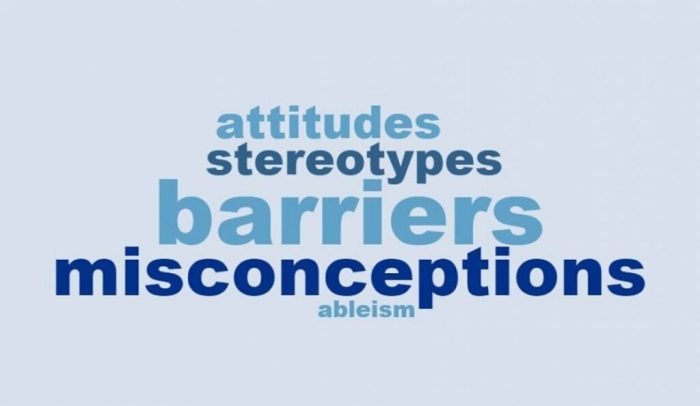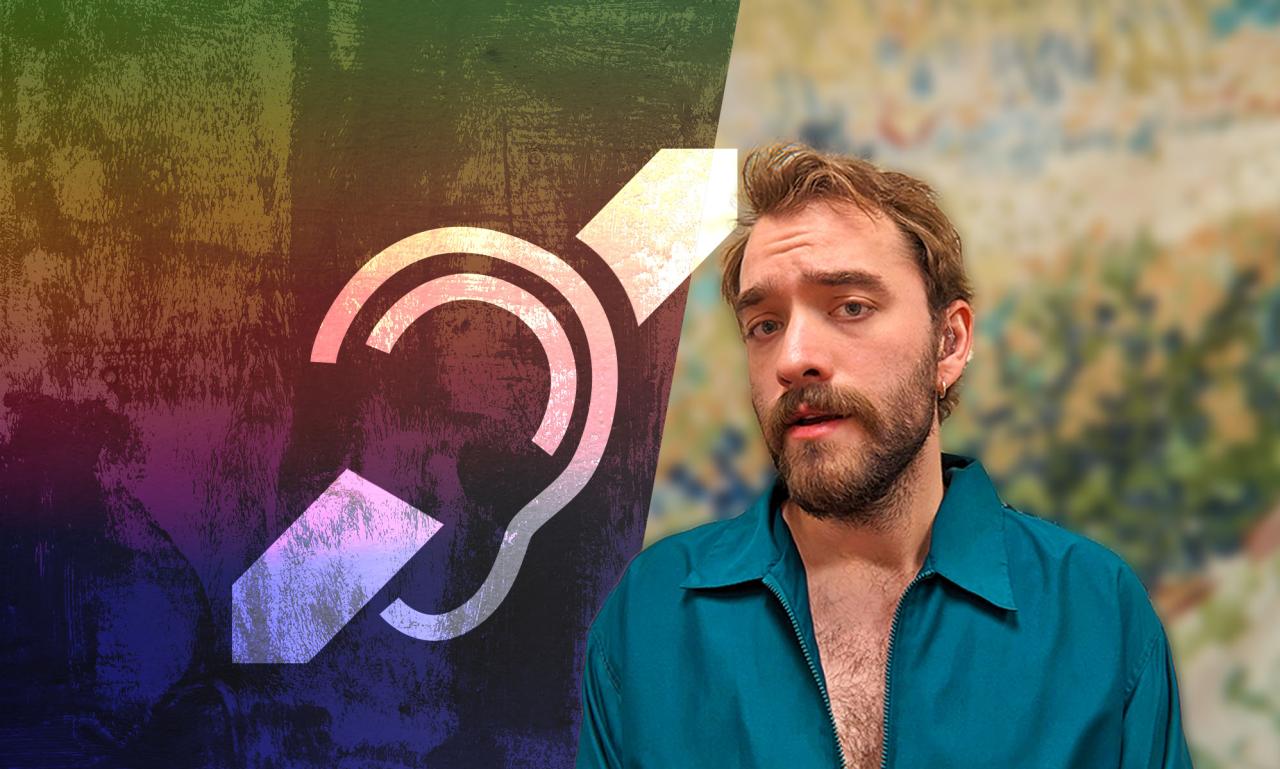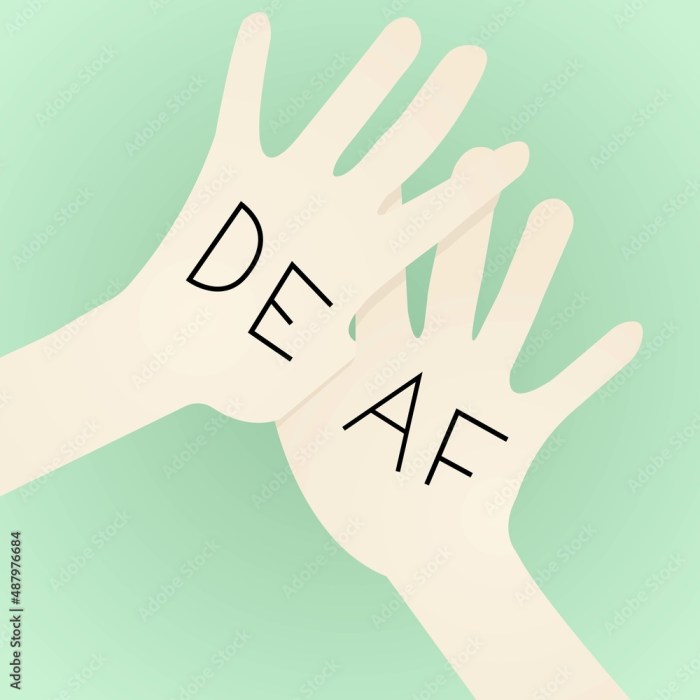Ableism in the deaf community, a pervasive issue that often goes unnoticed, is a topic that demands our attention. This prejudice, rooted in societal perceptions and institutional practices, has far-reaching consequences for Deaf individuals, impacting their self-esteem, access to education and employment, and overall well-being.
Join us as we delve into the complexities of ableism within the Deaf community, exploring its historical roots, consequences, and strategies for fostering inclusivity and accessibility.
The second paragraph will provide a comprehensive overview of the topic, setting the stage for the in-depth exploration that follows.
Historical Context of Ableism in the Deaf Community

Ableism towards Deaf people has deep historical roots, shaped by societal perceptions and institutional practices. These perceptions often stemmed from a belief in the inferiority of Deafness, leading to discriminatory attitudes and practices.
Medical Model
The medical model viewed Deafness as a medical condition that needed to be cured or treated. This model led to the development of harmful practices such as forced hearing aids and surgeries aimed at “fixing” Deaf people.
Educational Model
The educational model emphasized the importance of speech and lip-reading in Deaf education. This model often excluded Deaf students who used sign language, leading to a lack of access to quality education and opportunities.
Ableism in the deaf community is a pervasive issue, affecting deaf individuals’ access to education, employment, and social opportunities. While society often assumes that deaf people are less mature than their hearing peers, a recent quiz challenges this stereotype, highlighting the importance of recognizing the unique experiences and perspectives of deaf individuals.
Consequences of Ableism for Deaf Individuals: Ableism In The Deaf Community

Ableism has profound consequences for Deaf individuals, affecting their psychological, social, and economic well-being. This includes negative impacts on self-esteem, access to education and employment, and overall quality of life.
Psychological Consequences
- Low self-esteem and feelings of inferiority due to societal devaluation of Deafness.
- Internalized ableism, where Deaf individuals internalize negative stereotypes and beliefs about their abilities.
- Increased anxiety and depression due to the challenges of navigating a hearing-centric world.
Social Consequences, Ableism in the deaf community
- Exclusion from social activities and events due to communication barriers and lack of accessibility.
- Limited social networks and difficulty forming meaningful relationships.
- Discrimination and prejudice in various settings, including education, employment, and healthcare.
Economic Consequences
- Higher unemployment rates and lower incomes compared to hearing peers.
- Underemployment and limited career opportunities due to lack of accommodations and accessibility.
- Increased healthcare costs associated with the additional challenges faced by Deaf individuals.
Challenging Ableism in the Deaf Community

Combating ableism within the Deaf community requires a multifaceted approach involving advocacy, education, and cultural representation.
Strategies for Challenging Ableist Attitudes and Practices
Challenging ableist attitudes and practices requires a multifaceted approach:
- Deaf Advocacy Groups:Deaf advocacy groups play a crucial role in raising awareness about ableism, advocating for the rights of Deaf individuals, and challenging discriminatory policies and practices.
- Educational Campaigns:Educational campaigns aim to inform the Deaf community about ableism, its impact, and strategies for addressing it. They can include workshops, seminars, and online resources.
- Cultural Representation:Positive and inclusive representation of Deaf individuals in media, education, and other cultural spheres helps challenge stereotypes and promote inclusivity.
Role of Deaf Advocacy Groups, Educational Campaigns, and Cultural Representation
Deaf advocacy groups, educational campaigns, and cultural representation are essential in promoting inclusivity within the Deaf community:
- Advocacy Groups:They advocate for policies and practices that promote equality and access for Deaf individuals, such as accessible education, employment, and healthcare.
- Educational Campaigns:They educate the Deaf community about ableism and its impact, empowering individuals to challenge discriminatory attitudes and behaviors.
- Cultural Representation:It breaks down stereotypes and promotes a more inclusive and accepting environment for Deaf individuals.
Promoting Inclusivity and Accessibility

Creating an inclusive and accessible environment for Deaf individuals is crucial for their full participation and well-being in society. This involves recognizing and accommodating their unique communication needs and cultural perspectives.
One essential aspect is sign language recognition. Sign language is the primary language of Deaf communities, and it should be recognized and respected as a legitimate form of communication. Providing sign language interpreters in various settings, such as healthcare, education, and employment, ensures that Deaf individuals can fully access information and services.
Assistive Technologies
Assistive technologies, such as hearing aids, cochlear implants, and assistive listening devices, can enhance communication and accessibility for Deaf individuals. These technologies can amplify sound, reduce background noise, and provide visual cues, enabling Deaf individuals to participate more effectively in various environments.
Cultural Sensitivity
Cultural sensitivity is vital in promoting inclusivity for Deaf individuals. Recognizing and respecting Deaf culture, values, and perspectives is essential. This includes understanding the importance of eye contact in Deaf communication, avoiding interrupting signers, and using appropriate terminology when referring to Deaf individuals.
By implementing these recommendations, we can create more inclusive and accessible environments that empower Deaf individuals to fully participate in society.
User Queries
What is ableism?
Ableism refers to the discrimination or prejudice against individuals with disabilities, including those who are Deaf or hard of hearing.
How does ableism manifest in the Deaf community?
Ableism in the Deaf community can take various forms, such as negative attitudes towards sign language, the assumption that Deaf people are less intelligent or capable, and the lack of accessibility in public spaces and workplaces.
What are the consequences of ableism for Deaf individuals?
Ableism can have profound consequences for Deaf individuals, including low self-esteem, limited access to education and employment opportunities, and social isolation.

